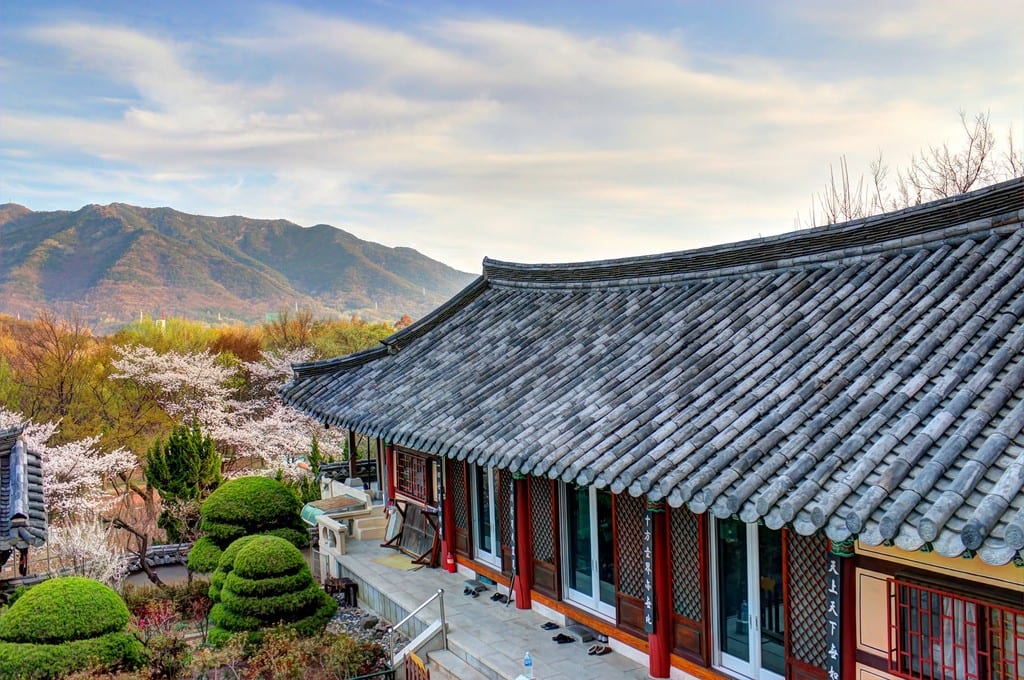The first reason to teach English in South Korea is that it is very easy to get a job, especially if you are a first-time teacher. Learning English is mandatory in South Korean public schools, meaning there is a huge demand for certified Native English teachers (NETs). English is highly valued in their culture as well, to the extent that almost every child attends an after-school English academy in addition to participating in a regular class at school. This allows potential teachers to have a variety of options when it comes to choosing a teaching job in South Korea.
The requirements are also pretty basic. Legally, you must have a bachelor’s degree, but your major is irrelevant because it’s only required for work visa purposes. Employers are more interested in you being a native speaker and having 120-hour TESOL certificate or higher qualification.
Recommended TESOL / TEFL certification for teaching K-12 ESL Abroad: 168-hour Hybrid TEFL Certificate with 3 specialists and a live interactive module on ESL lesson planning frameworks.
Sign up to the OnTESOL job board to find teaching jobs in South Korea. Below are 9 reasons to teach English in South Korea:
1. Great Pay

South Korea offers a very competitive and comprehensive benefits package. In fact, apart from the Middle East, it is probably the best deal in the world. The average monthly salary for entry-level teachers in South Korea is around $2500, and most teachers get to save a good chunk because of all the other benefits.
After accepting a job and getting the necessary paperwork to your employer, they will handle the visa process in its entirety. In addition to this, the employer pays for your round trip flights! Some choose to reimburse you for them at the completion of your one-year contract, but my employer paid for mine straight after I got my visa.
Upon arrival in South Korea, you will be given a free studio apartment and will only be responsible for paying your own bills. Your employer will go 50/50 with you on your health insurance, which is already incredibly cheap anyway.
2. Large Expat Community

In general, South Korea is not a multicultural country at all, but there is a huge foreign teacher community here. Although many other aspects of life, such as technology and education, have developed very rapidly in Korea, multiculturalism has not. However, because of the importance placed on learning English, the demand for teachers, and the sweet benefits package, thousands of Western expats flock to South Korea every year, many of whom stay for multiple contracts.
These expat communities are tight-knit and welcoming. You can find social media groups in every city or area. There is a group for almost anything and, if there’s not, it’s probably your cue to start one. During my time as an English teacher in South Korea, I joined an indoor volleyball group, played in beach volleyball tournaments, attended soccer and ultimate frisbee tournaments, went to a documentary premiere created by an expat, learned to salsa at a dance studio, and went on hiking and long-distance biking trips, just to name a few. It’s a comforting and reassuring feeling to have these connections while teaching abroad, especially when you move to a culture that is so vastly different from your own.
Read: Get Your TESOL Certification to Qualify for TESOL Jobs in South Korea
3. South Korea is a Great Place to Travel

Traveling around South Korea (and the rest of Asia) is super easy to do. It may change based on location and transportation options, but the country is small and modern so there are plenty of options to travel without breaking the bank.
Public school teachers usually get two weeks of vacation per year (plus public holidays), but hagwon teachers like myself are completely at the mercy of their employers.
Traveling around the peninsula is completely doable for the weekend thanks to the KTX bullet train. The location of South Korea also allows for easy flight transfers from Seoul to most other Asian hubs.
Read Things You Probably Didn’t Know About South Korea
4. Teachers in South Korea Enjoy a Great Lifestyle
Teaching English in South Korea allows for a very relaxed lifestyle. Because of the high wages and affordability of the country, teachers in South Korea get to experience an amazing lifestyle.
This is a huge contributing factor to why so many people stay for more than one year. Going out to dinner is the same price, if not cheaper, than buying groceries and cooking for yourself, so it’s not uncommon for people to go out to dinner with friends on most nights.
This was tricky for me and my fellow vegetarians, as South Korea is a meat-loving country, but the social aspect of going out makes it worth it.
5. Beautiful and Diverse Landscapes

The Korean peninsula and all of its islands are covered with beautiful scenery. The climate includes all four seasons, so the entire range of outdoor activities is represented across the country.
Korea is extremely mountainous and, as such, provides innumerable hiking trails and ski runs. Beaches cover the perimeter of the country and, luckily, you don’t need to worry about any creepy creatures in the water getting you (usually).
Read: Teaching English with EPIK in Jeju Island
6. Modern Cities

Bustling cities such as Seoul and Busan allow for endless cultural exploration. As ancient people, South Koreans have many traditions, stories, and art that they are very proud to share.
While the country is home to many gorgeous sites, the cities are a great place to view art and learn about South Korea’s dynamic history. Plus, the cities are all awake and lively 24 hours a day. You have access to anything and everything at any time, at least in urban areas.
7. Friendly People
South Koreans are some of the friendliest people in the world. Obviously, this isn’t 100% fool-proof, but in my experience, South Koreans are very friendly and welcoming to Western expats.
They showed me and everyone that I knew such kindness and generosity that it was hard to leave at the end. However, because of the lack of multiculturalism, you are a novelty and will often be treated as such. For example, I once went with a friend to a scenic spot, but the locals there were taking photos of us without asking. People don’t mean anything bad by this and, in fact, it’s more like a compliment; it’s just a bit awkward at first.
Read: Cultural Adaptation in South Korea
8. Teaching English in Rural South Korea

Rural placements are just as great. Opportunities to work in rural places are also available for those who are chasing a quieter experience.
Living in a village will allow you to connect with South Koreans who are living a more traditional lifestyle. It will also allow you to save almost all of your income, as you won’t have the dining and nightlife options of the city. However, you will almost definitely be the only or one of a few expats for quite a distance, which can feel isolating for the faint of heart.
9. Great Teaching Environment
Your students will undoubtedly be the most polite and respectful students you will ever teach. And as any teacher knows- or any future teacher will shortly find out-that makes for a much more enjoyable and positive teaching experience.





